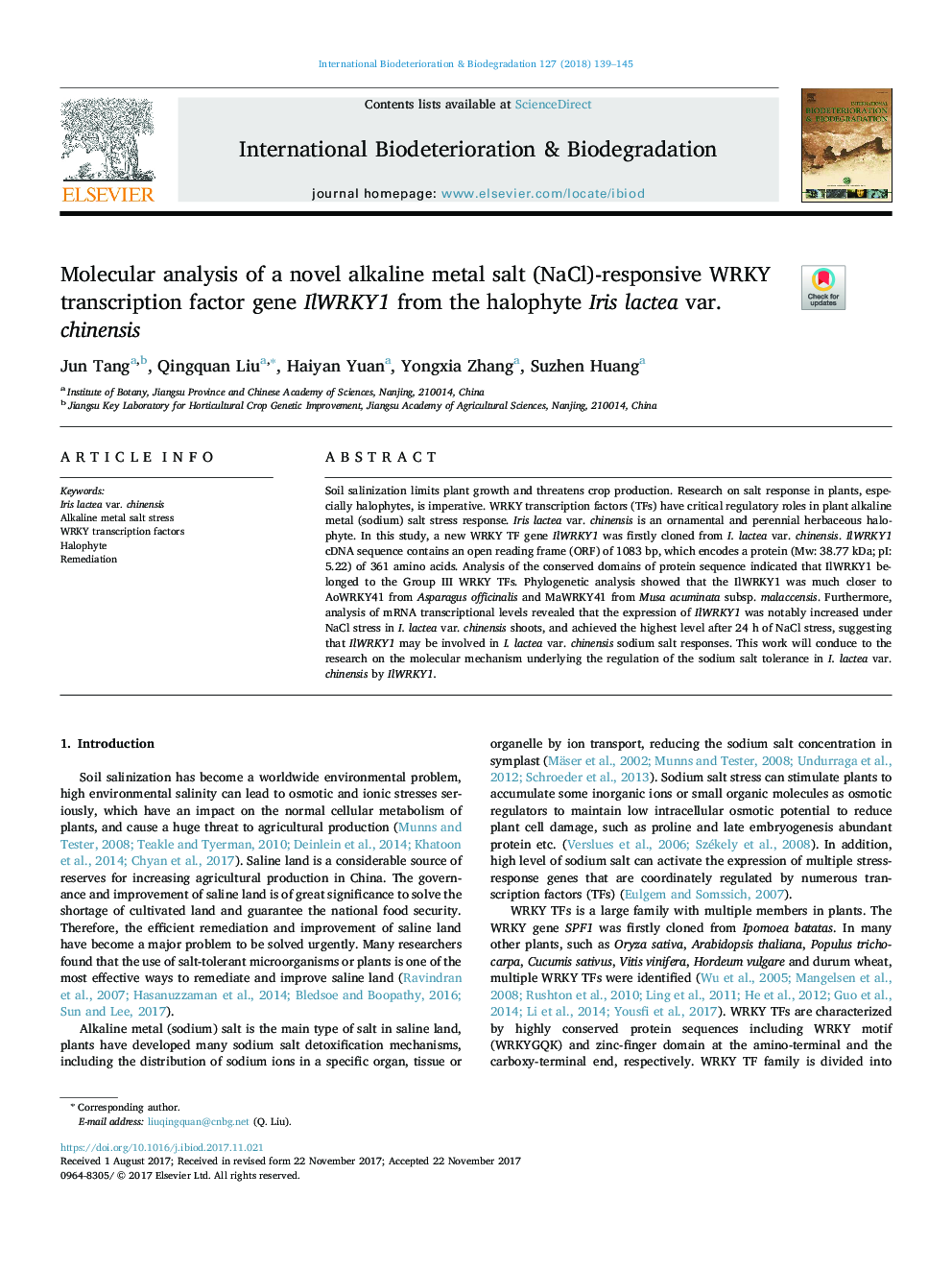| Article ID | Journal | Published Year | Pages | File Type |
|---|---|---|---|---|
| 8843944 | International Biodeterioration & Biodegradation | 2018 | 7 Pages |
Abstract
Soil salinization limits plant growth and threatens crop production. Research on salt response in plants, especially halophytes, is imperative. WRKY transcription factors (TFs) have critical regulatory roles in plant alkaline metal (sodium) salt stress response. Iris lactea var. chinensis is an ornamental and perennial herbaceous halophyte. In this study, a new WRKY TF gene IlWRKY1 was firstly cloned from I. lactea var. chinensis. IlWRKY1 cDNA sequence contains an open reading frame (ORF) of 1083 bp, which encodes a protein (Mw: 38.77Â kDa; pI: 5.22) of 361 amino acids. Analysis of the conserved domains of protein sequence indicated that IlWRKY1 belonged to the Group â
¢ WRKY TFs. Phylogenetic analysis showed that the IlWRKY1 was much closer to AoWRKY41 from Asparagus officinalis and MaWRKY41 from Musa acuminata subsp. malaccensis. Furthermore, analysis of mRNA transcriptional levels revealed that the expression of IlWRKY1 was notably increased under NaCl stress in I. lactea var. chinensis shoots, and achieved the highest level after 24Â h of NaCl stress, suggesting that IlWRKY1 may be involved in I. lactea var. chinensis sodium salt responses. This work will conduce to the research on the molecular mechanism underlying the regulation of the sodium salt tolerance in I. lactea var. chinensis by IlWRKY1.
Related Topics
Life Sciences
Environmental Science
Environmental Science (General)
Authors
Jun Tang, Qingquan Liu, Haiyan Yuan, Yongxia Zhang, Suzhen Huang,
